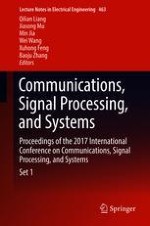2019 | OriginalPaper | Chapter
Multi-speaker Recognition in Cocktail Party Problem
Authors : Yiqian Wang, Wensheng Sun
Published in: Communications, Signal Processing, and Systems
Publisher: Springer Singapore
Activate our intelligent search to find suitable subject content or patents.
Select sections of text to find matching patents with Artificial Intelligence. powered by
Select sections of text to find additional relevant content using AI-assisted search. powered by
